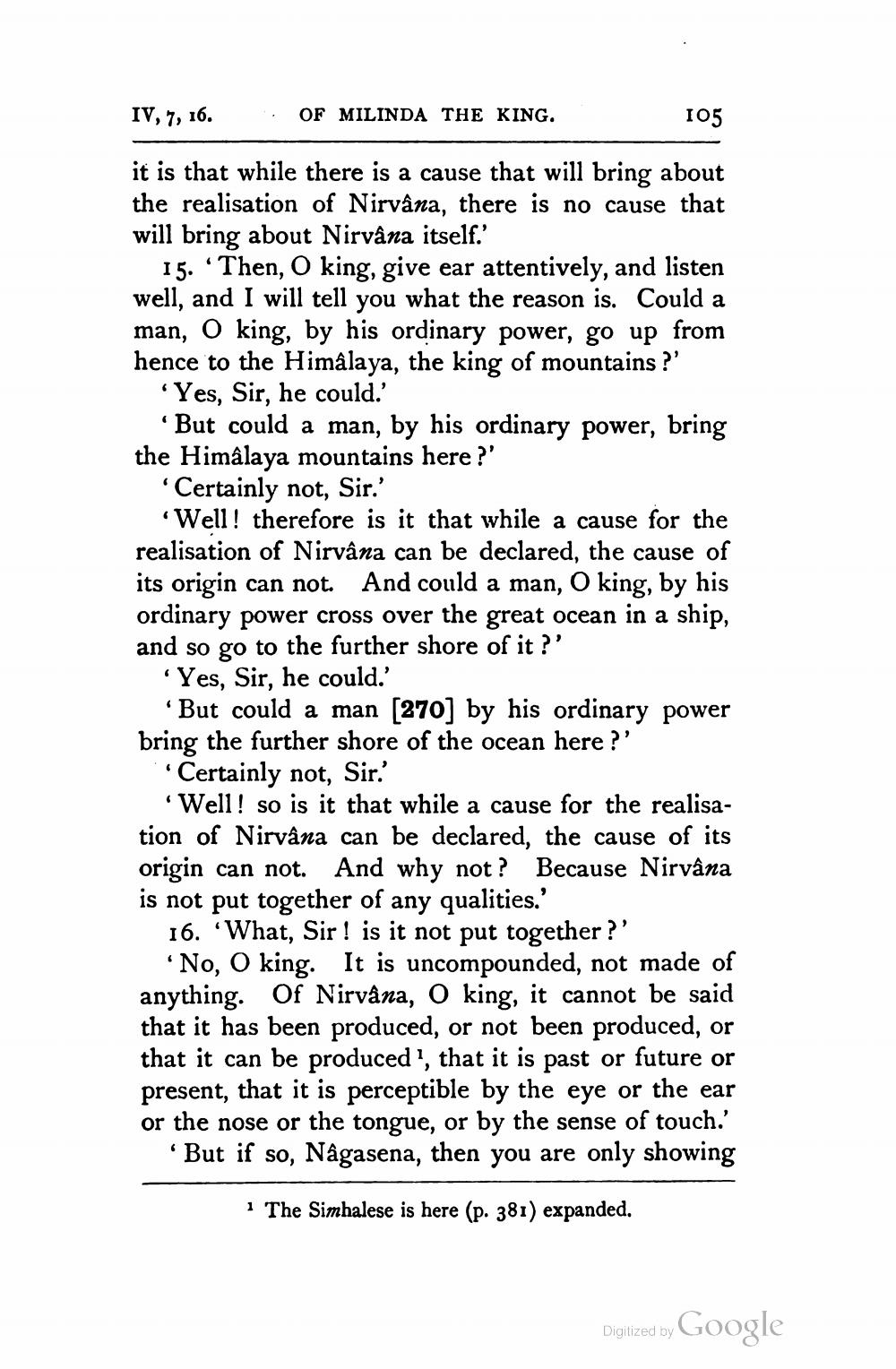________________
IV, 7, 16.
5 OF MILINDA THE KING.
105
it is that while there is a cause that will bring about the realisation of Nirvana, there is no cause that will bring about Nirvana itself.'
15. “Then, O king, give ear attentively, and listen well, and I will tell you what the reason is. Could a man, O king, by his ordinary power, go up from hence to the Himalaya, the king of mountains ?'
Yes, Sir, he could.'
But could a man, by his ordinary power, bring the Himalaya mountains here?'
Certainly not, Sir.'
Well! therefore is it that while a cause for the realisation of Nirvâna can be declared, the cause of its origin can not. And could a man, O king, by his ordinary power cross over the great ocean in a ship, and so go to the further shore of it ?' 'Yes, Sir, he could.'
But could a man [270] by his ordinary power bring the further shore of the ocean here ?'
Certainly not, Sir.'
Well! so is it that while a cause for the realisation of Nirvana can be declared, the cause of its origin can not. And why not? Because Nirvana is not put together of any qualities.'
16. What, Sir! is it not put together?' "No, O king. It is uncompounded, not made of anything. Of Nirvana, O king, it cannot be said that it has been produced, or not been produced, or that it can be produced', that it is past or future or present, that it is perceptible by the eye or the ear or the nose or the tongue, or by the sense of touch.'
But if so, Någasena, then you are only showing
· The Simhalese is here (p. 381) expanded.
Digitized by Google




